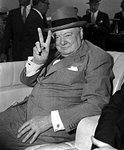The Gitmo Nightmare
What the Supreme Court has wrought.
by Matthew Continetti
06/23/2008, Volume 013, Issue 39
It's hard to summarize a decision as long and complicated as the Supreme Court's 5-4 ruling last week in Boumediene v. Bush. But we can try. Unprecedented. Reckless. Harmful. Breathtakingly condescending.
The Court, in an opinion written by Justice Anthony Kennedy, ruled that non-citizens captured abroad and held in a military installation overseas--the remaining 270 or so inmates at the terrorist prison in Guantánamo Bay, Cuba--have the same constitutional right as U.S. citizens to challenge their detention in court. Furthermore, the current procedures by which a detainee's status is reviewed--procedures fashioned in good faith and at the Court's behest by a bipartisan congressional majority in consultation with the commander in chief during a time of war--are unconstitutional.
The upshot is the prisoners at Camp Delta can now file habeas corpus petitions in U.S. district courts seeking reprieve. Hence lawyers, judges, and leftwing interest groups will have real influence over the conduct of the war on terror. Call it the Gitmo nightmare.
As it happens, some of the most effective arguments against Boumediene come from the decision itself. For example, Justice Kennedy wrote that in cases involving terrorist detention, "proper deference must be accorded to the political branches." Then he overrode them.
Kennedy further noted that "unlike the President and some designated Members of Congress, neither the Members of this Court nor most federal judges begin the day with briefings that may describe new and serious threats to our Nation and its people." They had better start, because the courts are about to be flooded with petitions to release terrorists sworn to America's destruction.
He also wrote that now the "political branches can engage in a genuine debate about how best to preserve constitutional values while protecting the Nation from terrorism." But that is precisely what Congress and the president were doing when they passed legislation laying out a process for detainee review, one that in fact addressed concerns previously raised by the Court. The Court now says this process is inadequate. What would be adequate? Kennedy's answer: I'll get back to you on that.
In his opinion, Kennedy conceded that "before today the Court has never held that non-citizens detained by our Government in territory over which another country maintains de jure sovereignty have any rights under our Constitution." Inventing rights seems to be what some of today's Supreme Court justices do best. In 1950 the Court ruled in Johnson v. Eisentrager that foreign nationals held in a military prison on foreign soil (in that case, Germany) had no habeas rights. But, without overruling Eisentrager, Kennedy said the Guantánamo detainees are different from the German prisoners 58 years ago.
Why? Kennedy wrote that Eisentrager had a unique set of "practical considerations," and the United States did not have "de facto" sovereignty over Germany as it does over Guantánamo Bay. That territory, "while technically not part of the United States, is under the complete and total control of our Government." But these slippery distinctions only raise more questions. Doesn't the United States government exercise "complete and total control" over its military and intelligence facilities worldwide? If so, what's to stop foreign combatants held in those locations from asserting their habeas rights?
And what precise form will these habeas hearings take? What standards of judgment are the courts to apply? Will plaintiffs' attorneys be allowed to go venue shopping and file their petitions in the most liberal courts in the nation? Will they conduct discovery? Will they recall soldiers and intelligence agents from the field to testify? What happens when the available evidence does not satisfy judges who are used to adjudicating under the exclusionary rule? Will the cases be thrown out? Will the detainees be freed, able to return to the battlefield? That, after all, is what some 30 released detainees seem already to have done.
The Supreme Court does not worry about such things. Instead it piously reminded the people that "the laws and Constitution are designed to survive, and remain in force, in extraordinary times." No kidding. Has anyone ever argued otherwise?
Kennedy's sanctimony points to the ultimate tragedy of the Boumediene mess. In their visceral, myopic hatred of President Bush, liberals will see the ruling as a blow to the president and not the broad, foolish, and dangerous judicial power grab it is. The New York Times's editorialists wrote that "compliant Republicans and frightened Democrats" allowed Bush to deny foreign enemy combatants during wartime "the protections of justice, democracy and plain human decency."
Give us a break. One day soon Bush will be gone. But thanks to the Court, we'll still all be living the Gitmo nightmare.
--Matthew Continetti, for the Editors
© Copyright 2008, News Corporation, Weekly Standard, All Rights Reserved.
Sunday, June 15, 2008
Subscribe to:
Post Comments (Atom)

No comments:
Post a Comment